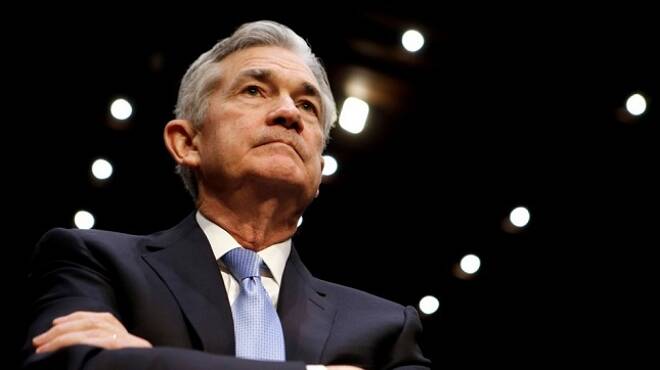Advertisement
Advertisement
Fed Chair Powell Offers Insight on Economy, Policy and Trump Criticisms
By:
It was important for Powell to make it clear to investors that Federal Reserve policymakers are independent and not associated with any political parties. This is especially important because the economy appears to be at a turning point just ahead of start of campaigning for the 2020 U.S. Presidential Election.
U.S. Federal Reserve Chairman Jerome Powell was in the news Sunday night. In an appearance on CBS television program “60 Minutes”, Powell discussed the economy, interest rates, and President Trump’s criticism of Federal Reserve monetary policy. The Chairman offered nothing new for investors to chew on with the financial markets showing little, if any, reaction.
Nonetheless, it was important for Powell to make it clear to investors that Federal Reserve policymakers are independent and not associated with any political parties. This is especially important because the economy appears to be at a turning point just ahead of start of campaigning for the 2020 U.S. Presidential Election.
Powell on the Economy and Fed Policy
Fed Chair Jerome Powell was asked a series of questions by Scott Pelley of “60 Minutes”. Here are the highlights that could have clarify his view of the economy and current Fed policy.
“Have you stopped raising rates?”
“We see the economy as in a good place,” Powell responded. “Inflation is muted and our policy rate we think is in an appropriate place. So what we’ve said is that we would be patient.”
“What does patient mean?”
“Patient means we don’t feel any hurry to change our interest rate policy,” Powell answered. “What’s happened in the last 90 days or so is that we’ve seen increasing evidence of the global economy slowing down, although our own economy has continued to perform well.”
“Are we headed into a recession?”
“I think growth this year will be slower than last year…will continue to be positive and continue to be a healthy rate,” he said. “Eventually, expansions come to an end. The business cycle has not been repealed. But I would say there’s no reason why this economy cannot continue to expand.”
“Is the 3 percent-plus growth we saw in 2018 the best we can do? Are the days of 4 percent growth over?”
“Back when we used to have 4 percent and 5 percent growth years, the labor force was growing quickly – 2.5 percent, 3 percent in some cases back in the ‘60s and ‘70s,” Powell explained. “We have an older population now. Our labor force is growing more slowly. It’s growing less than 1 percent a year. So it’s not likely that we could sustain the kinds of growth rates that we had when population and the labor force were growing more quickly.”
“Would the Fed quickly raise rates if inflation surpassed 2 percent?”
“I think we wouldn’t overreact to inflation modestly above 2 percent any more than we overreacted to inflation modestly below 2 percent. I think we’ll always be moving inflation back to 2 percent with our policy.”
“Are American banks safe today a decade after the financial crisis?
“The American banking system is much, much stronger and more resilient that it was before the financial crisis. Particularly the largest banks have double the amount of capital, which is to say resources to absorb losses.”
“So a collapse of the financial system like we saw in 2008 cannot happen again?”
“’Cannot’ is a strong statement. You know, I would say our system is vastly more resilient.”
“What keeps Jerome Powell up at night?”
“We devote large amounts of time and resources to protect the Fed but also to protect financial institutions and financial market,” Powell explained. “I would say for cyber risk, though, I’ve never felt a time when I think we’re doing enough…The kind of risks that we faced with the financial crisis were very real, but we know, I think in general, what to do there. Cyber is a relatively new kind of risk with nation-state actors. And it’s one where the playbook is still being developed in real time.”
About the Author
James Hyerczykauthor
James Hyerczyk is a U.S. based seasoned technical analyst and educator with over 40 years of experience in market analysis and trading, specializing in chart patterns and price movement. He is the author of two books on technical analysis and has a background in both futures and stock markets.
Advertisement
